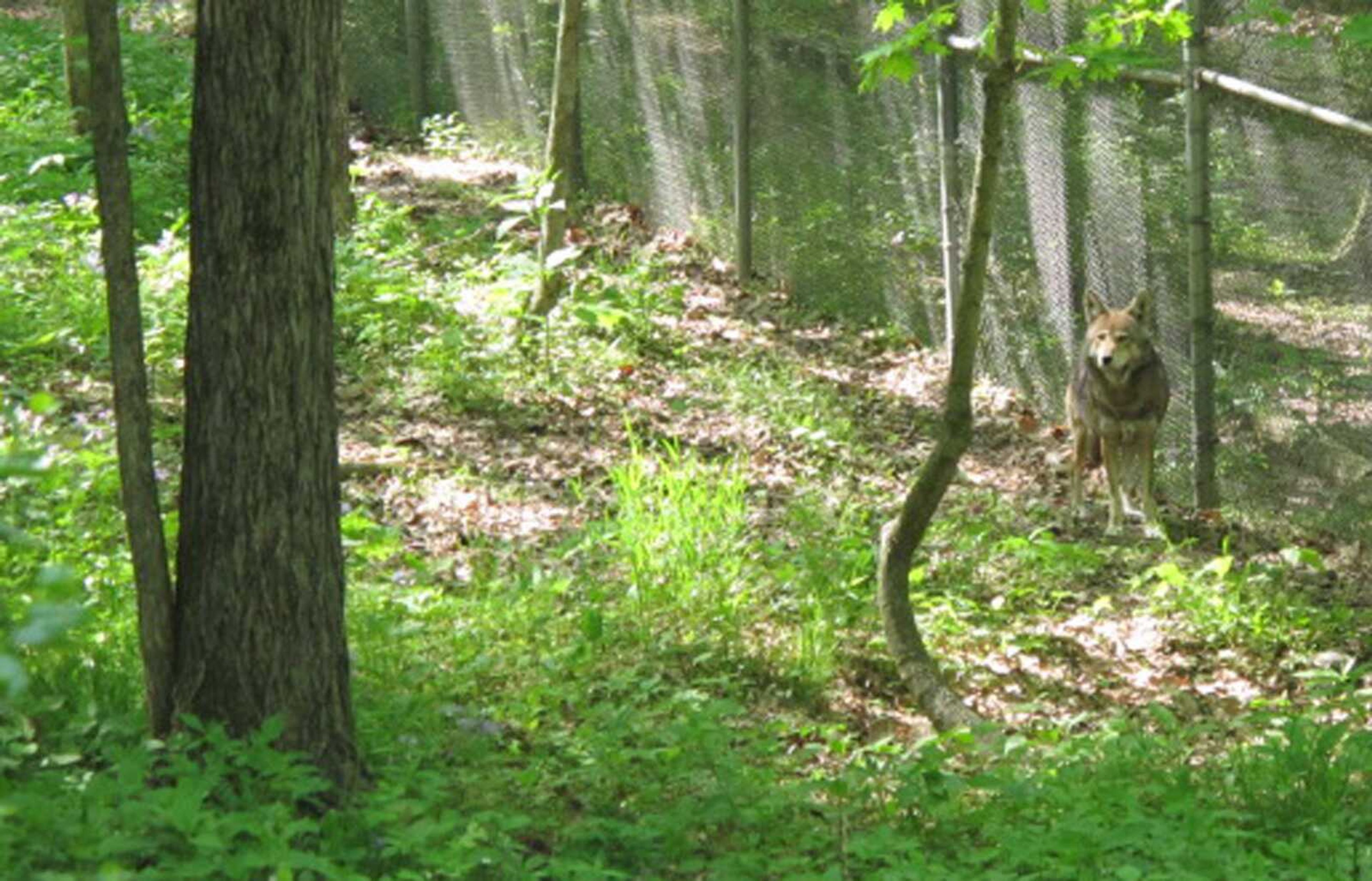Missouri site helping in effort to repopulate wolves
EUREKA, Mo. -- A secluded Missouri conservation center heralded for helping repopulate the wild with endangered wolves is tending to its latest puppy season -- a ritual that now is bittersweet in the absence of the site's furry matriarch. With 41 Mexican gray wolf pups to her credit until she died April 21, a day before her 14th birthday, Anna came to symbolize the Endangered Wolf Center's quest to save North America's rarest subspecies of gray wolf...
EUREKA, Mo. -- A secluded Missouri conservation center heralded for helping repopulate the wild with endangered wolves is tending to its latest puppy season -- a ritual that now is bittersweet in the absence of the site's furry matriarch.
With 41 Mexican gray wolf pups to her credit until she died April 21, a day before her 14th birthday, Anna came to symbolize the Endangered Wolf Center's quest to save North America's rarest subspecies of gray wolf.
The center's staffers are mourning the loss of Anna, whose offspring came in four litters over a five-year stretch to 2008, dwarfing the typical brood of four to seven. Yet, the St. Louis-area center presses on, championing an animal that at times is vilified.
The Mexican wolf population in the Southwest once numbered in the thousands before being nearly wiped out by the 1970s, largely the result of more than a century of being hunted, trapped and poisoned by ranchers and others. Commonly known as "El Lobos," the Mexican gray was designated an endangered species in 1976 and was considered extinct in the wild until it was reintroduced in 1998.
The 110 said to be in the wild as of early 2014 -- by Virginia Busch's account, all of them with genetic ties to the center for which she is executive director -- is up from 83 the previous year, the U.S. Fish and Wildlife Service said.
"To take something so close to extinction, breed several generations in captivity and establish a wild population, that's huge," said Maggie Dwire, assistant Mexican gray wolf recovery coordinator for the federal agency. "We've been incredibly successful, but we still have a really long way to go."
The Eureka center's director of animal care and conservation, Regina Mossotti, said about 175 Mexican grays have been born at the center since 1980 -- amounting to about 40 percent of Mexican grays birthed in captivity.
Anna did her part, enough to garner a feature in National Geographic for her birth rate Busch called "genetically mind-boggling."
"That's why celebrating (Anna's) life and legacy is so important," Busch said. "This is an issue that so many people don't have on their radar."
The not-for-profit, founded in 1971 by zoologist Marlin Perkins, a late St. Louis native best known as the host of TV's "Mutual of Omaha Wild Kingdom," also has three dozen wolves, foxes and African painted dogs roaming enclosures on dozens of acres leased from Washington University.
A similar comeback, with the center's help, has been waged by the red wolf, now believed to number somewhere around five dozen, almost exclusively in the Southeast.
"They used to reach all the way to Missouri," Busch said of the red wolves.
For Busch and others at the center, which touts itself as the nation's biggest holder of Mexican gray wolves, helping such animals battle back has been as much about education as it has about breeding.
Over so many years of unfavorable depictions in everything from fairy tales to Hollywood horrors, Busch said, "there's been a pretty bad stain on the wolves -- Little Red Riding Hood, wolves at the door, thrown to the wolves," all of it instilling fear about the loping animal that actually shuns humans.
"People talk of wolves as vicious, scary animals, and they're not," Mossotti said. "You tend to fear what you don't understand. And if people could work here one day, they'd never fear wolves again."
Connect with the Southeast Missourian Newsroom:
For corrections to this story or other insights for the editor, click here. To submit a letter to the editor, click here. To learn about the Southeast Missourian’s AI Policy, click here.









